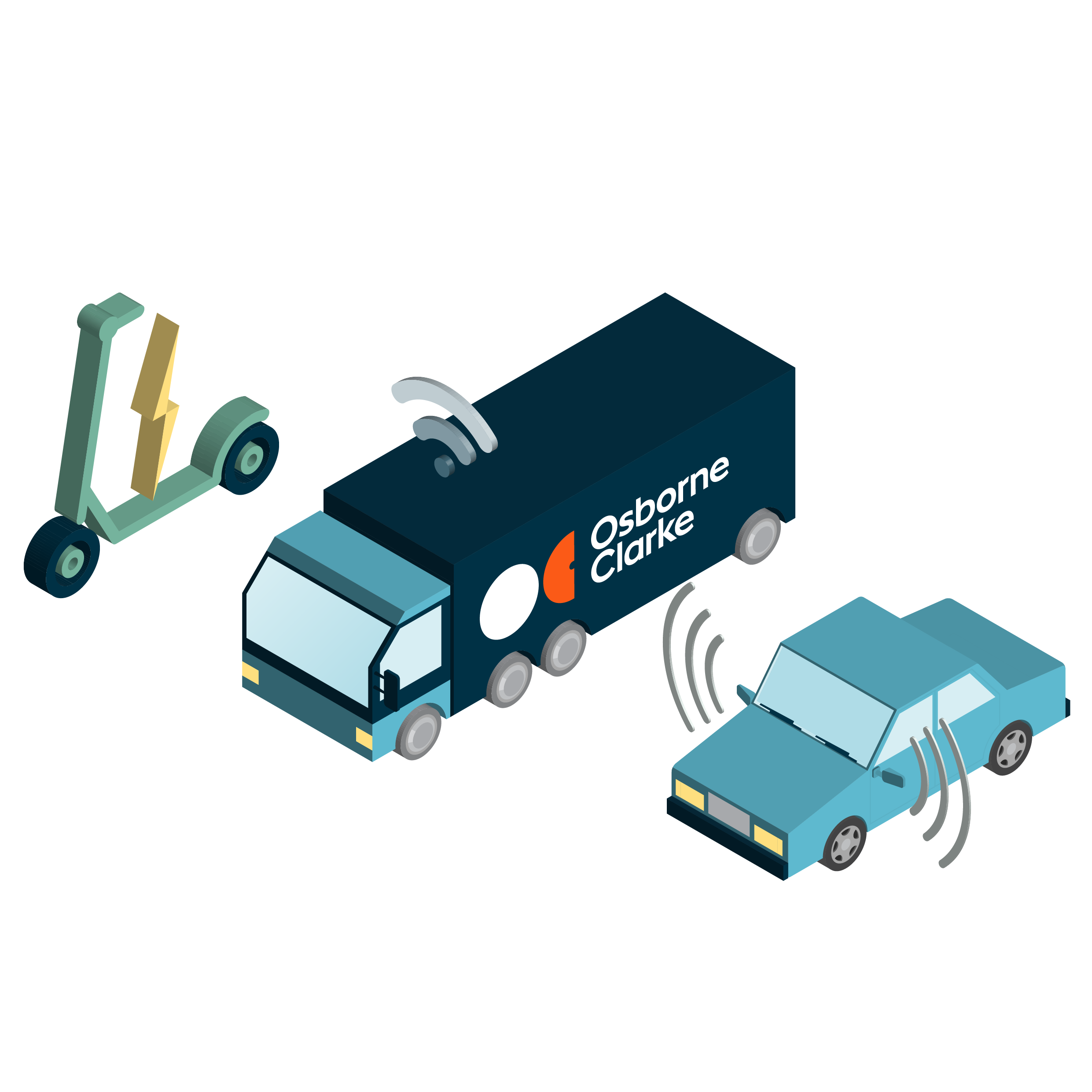How competition law can open up international mobility markets
Published on 9th June 2022
Competition law promotes data access, interoperability and innovation

|
Competition law and MaaS: Opening up mobility markets. Listen to the episode below and subscribe for more. |
For those looking for business opportunities in mobility ecosystems, one of the positives about competition law is that it can help obtain what aftermarket operators and other innovators often require: access to data and interoperability.
Businesses that want to provide mobility-related services may need to connect the user with the transport operator and infrastructure. Those that want to combine different ride-sharing services will need interoperability. Businesses looking to interact with the motoring consumer will need access to the in-vehicle screen.
Competition law can mandate that key infrastructure or essential information is made available if the data is necessary to promote innovation, competition or sustainability objectives. This does not imply a free ride, but access against a license on fair, reasonable and non-discriminatory terms. A fee might sometimes be payable - but access is a possibility in limited circumstances. For example, data on the repair or maintenance of motor vehicles should be readily available for independent operators such as repairers or roadside assistance providers. Access to the vehicle service history may even be available free of charge, according to EU type approval rules.
Legislative developments
There are legislative developments both at EU level and in individual jurisdictions to ensure access to data. The European Commission has taken an active role in keeping digital markets open. This summer the Commission will unveil draft supplementary guidelines for competition in the motor vehicle sector, which should ensure appropriate access to information that will be essential for individual mobility and aftermarket solutions of the future. It is also consulting on its proposed Data Act, specifically with view to its impact on mobility markets.
The EU Digital Markets Act will soon subject powerful companies to stricter rules - with data access and interoperability high on its agenda. Germany has already amended its competition statute, and there are similar initiatives in several EU Member States, as well as in the UK.
Interoperability requirements may also apply when it comes to in-vehicle systems. Already back in 2003, when the European Commission allowed the creation of Toll Collect (a joint venture for the collection of motorway tolls that certain commercial vehicles must pay in Germany), it required that the toll company's hardware remained open to third-party software applications.
Data-sharing risks
Competition law mandates certain data exchanges, but prohibits some others. Sharing is not always caring: Competitors are not normally allowed to exchange sensitive data. If one competitor tells another, in confidence, that it is going to increase prices, the recipient of the information might feel encouraged to increase its prices as well. This could impede price competition to the detriment of the customer and is considered almost as bad as forming a cartel.
When dealing with competitors, anti-trust compliance is crucial. And businesses will need to have a compliance programme in place that explains what may or may not be discussed, for example, at trade association meetings or conferences. Dealings with suppliers and retailers are also subject to the limits of antitrust law.
Within the mobility sector, it is sometimes difficult to tell friend from foe. In many ways, sustainable mobility solutions require pooling data and other resources, which is a characteristic and perspective that competition authorities have begun to appreciate. Evolving mobility markets often involve "co-opetition", a mix between competition and cooperation generating efficiencies, which might outweigh antitrust concerns.
Companies might cooperate in one area, but compete in another; or one company that is firmly established in one market might be looking to enter another. Companies that see these opportunities in the rapidly changing mobility sector should continue to check whether they remain compliant.
The importance of compliance
This is even more pressing as many of the rules are changing. These include the EU's revised Vertical Block Exemption Regulation and the accompanying Guidelines on Vertical Restraints, which came into force on 1 June 2022. These reforms include rules and guidance for dual distribution, where a manufacturer sells direct and via distributors. In dual distribution, the manufacturer may be the distributor’s supplier but also its competitor in the downstream market - and this requires a particular focus and attention on compliance. Information flows between the distributor and the manufacturer need to be structured with care, such as to enhance efficiencies in production and distribution without unduly impeding price competition.
The Commission is also looking at ride-hailing services to see whether these impede competition. If two different Uber drivers, both want to take a passenger from A to B and charge the same rates, does this mean that they are competitors and restricting competition? Some economists argue that gig-economy workers within the same system are not competitors but complements, and that this is an employment law rather than competition issue. Commission officials have voiced an intention to take a closer look at labour markets, which might extend to gig economy issues as well as no-poaching agreements.
Competition analysis of mobility markets can be complex. It also raises the question whether it would be easier for competitors to merge and simplify their business.
Merger notification
Corporate transactions may need to be notified to and cleared by competition authorities. In the UK, merger filings are voluntary but they may be advisable or even mandatory in other parts of the world. In the EU, notification is mandatory if the relevant thresholds are met.
Stellantis’ acquisition of the shared mobility business Share Now is conditional on merger clearance. When Share Now was created as a combination of the car-sharing services of BMW and Daimler in 2018, the joint venture needed Commission approval. At the time, the transaction was seen as a combination of major car sharing schemes. For EU merger clearance, BMW and Daimler had to offer substantial commitments: The Commission required both companies to offer a remedy package for Vienna and five cities in Germany. The German automakers were also obliged to allow third-party integrator apps to display the vehicles and to open up the platform to present and future car-sharing rivals. In the years since, mobility markets have evolved and it remains to be seen how competition authorities will view the sale to Stellantis.
Osborne Clarke comment
Interoperability and data access are crucial for innovation and competition in mobility markets. Competition law will continue to affect and shape the new trends emerging in the urban mobility sector.
As and when Covid-19 recedes and cities and urban centres are able to move on fully from the pandemic, new ways of organising and offering transport are likely to come to the foreground, also in response to climate change.
This is the third in a series of articles that is drawn from Osborne Clarke's recent set of podcasts considering the legal and wider issues surrounding the development of urban mobility solutions. The next article will look in more depth at data in mobility solutions.





